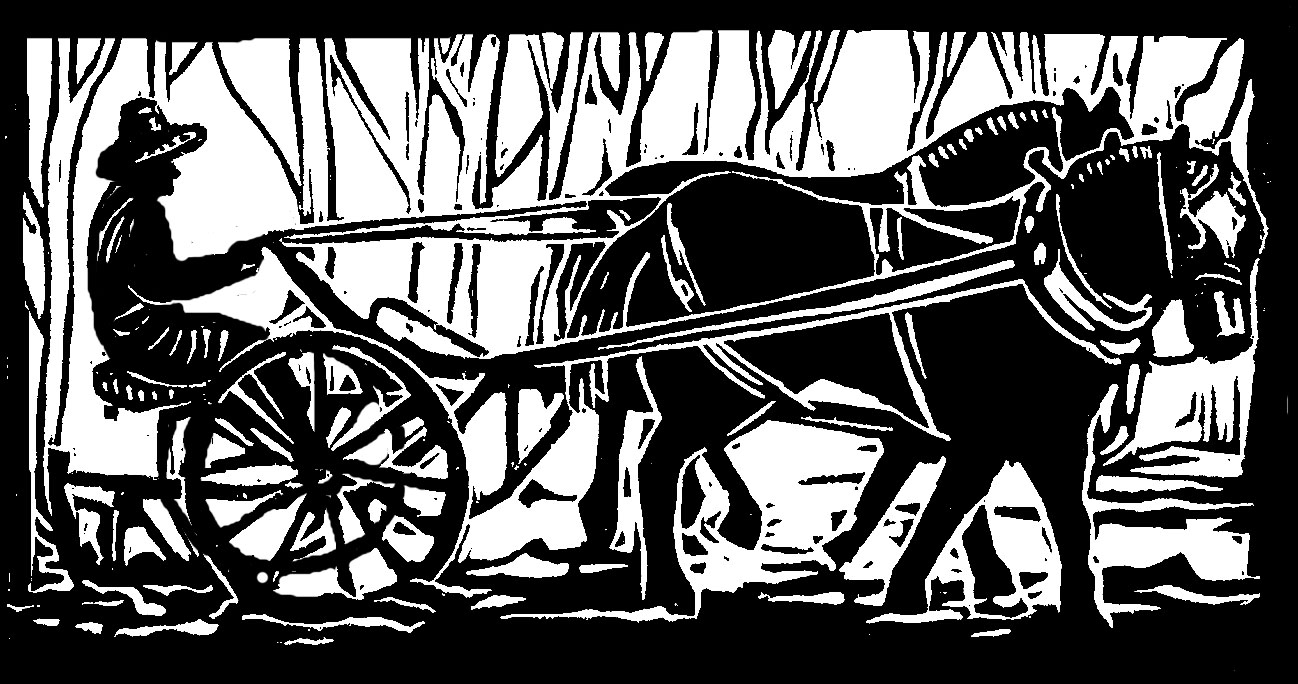We have five sections of hay to cut each summer. The first four went splendidly with our new horses. When we got to the fifth section, our daughter, who was kindly helping us, yet again, said, “It's a lot nicer to hay when it cools off in the evening. Let's start at five instead of noon.”
I agreed with the first statement, but couldn't agree to the second. “You never know if something's going to break down, and the forecast might change. It could rain tomorrow.” It had not rained in weeks, but the laws of haying are firm: if it's not raining, you must hay.
My daughter groaned. My fellow and the horses groaned, as they went from the shade of the barn to the blazingly sunny field.
We figured there were four loads, so we would finish around five, in time to make supper. We got two loads in before the first hayloader broke. My fellow and our daughter spent an hour and a half trying to replace links in the chain. No luck.
“We could run it until the chain on the other side breaks,” I suggested. I was unloading the haywagon. The load of hay seemed a lot bigger when I was working by myself.
“But then we'd have two broken chains,” said my fellow, “and still might not get the hay off today.”
“Why don't we just use the other hayloader? Don't we have two for exactly this reason?”
“Yes,” answered my fellow, “but it's going to take a while to grease it up.”
“Well, I've still got a lot to unload here,” I said grumpily.
Finally we took the second hayloader up to the field. We went 100 feet before we heard the banging. One of the thing-a-ma-jigs that shuffle the hay up was broken.
My fellow balanced precariously on the back edge of the haywagon, while my daughter handed him twine. I stood in front of the horses to keep them from moving ahead in case my fellow fell off. He did not fall off. We went another 100 feet. More banging. The twine had broken.
We repeat the precarious procedure with wire. A hundred more feet. The wire breaks, or maybe this time it is more pieces of the thing-a-ma-jing.
“Looks like we're picking the rest of this hay up by hand,” says my fellow.
“We don't have enough daylight,” I moan.
“I'm calling everyone we know,” says our daughter, which translates into the handful of people who might help us in the heat. One is at work, three are in Maine, and the fifth is at work and has evening plans with his spouse. But he comes anyway.
“Are we glad to see you!” we say.
The evening comes on quickly. We have to make smaller loads, working by hand, and that takes even more time. Dusk brings out the giant flies, buzzing, landing, and biting, which means horses bucking, kicking, and wanting to run.
My fellow stands in front of the team, talking firmly and calmly, using a long whip to chase off the flies. But it is a little dicey, and maybe it's good that our friend might not fully realize that, as repeatedly he hops up on the load to stomp the hay down.
My daughter and I pitch hay for all we're worth. The dog, who's had it with being tied around my waist and having to go with me for every forkful of hay, is excited by the bucking and kicking. He wants to stand in front of the horses and bark. Instead he gets tied to a tree and barks.
Then it is dark. We can't see the hay anymore. We might have it all.
“Good enough,” I say wearily, and we all go back down the hill. “I wish we had a nice supper to offer you,” we say to our friend. “How about some cold water?”
“That sounds good,” he says.
Last load of hay in the barn and no one hurt. That sounds good too.
Originally published in the Monadnock Shopper News, Sept 17 - Sept 20, 2025
